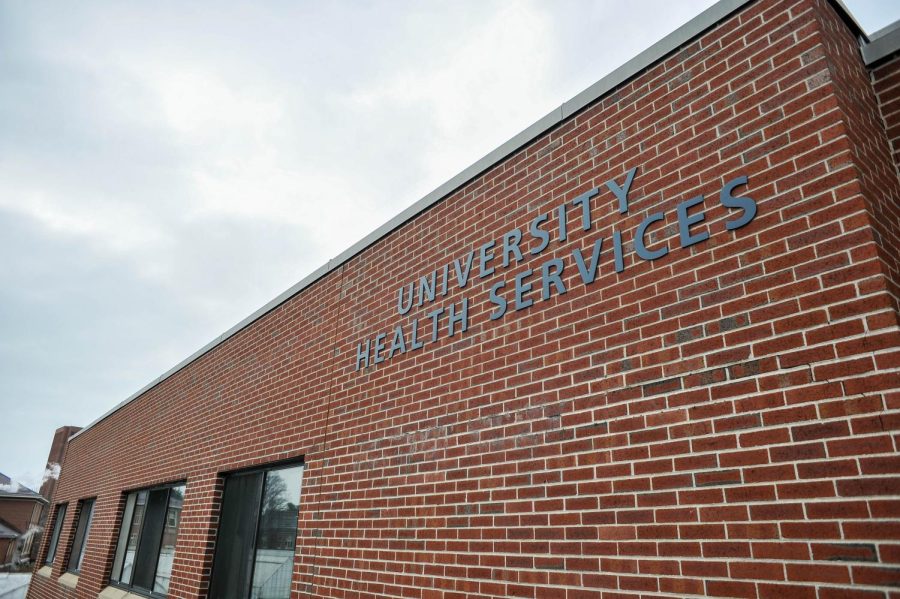On June 24, the Supreme Court released its decision in Dobbs v. Jackson Women’s Health Organization, overturning 49 years of precedent set by Roe v. Wade. Abortion is no longer constitutionally protected nationwide, leaving state legislatures to protect or restrict access to the procedure.
Although the University of Massachusetts Amherst will likely not feel the immediate impact of this decision, there are students, faculty and staff members who will bear the brunt of the inaccessibility to safe abortions. University Health Services can and should provide a safety net to the most vulnerable individuals by offering medicated abortions by mail to out-of-state students.
UMass has already created a system that will make abortions accessible on campus. In January, the University announced that UHS would provide abortion medications on campus beginning this fall. Medication abortions have proven to be a safe method with an efficacy rate of over 95 percent.
Among the class of 2025, over 40 students reside in states with near immediate abortion bans, though many also reside in states with restrictive laws or the possibility of restriction. Many other undergraduate and graduate students, as well as professors, will be impacted. This is a dire situation that the University cannot ignore.
According to the CDC, 43 percent of all abortions in 2019 were performed using medication. Medication abortions use two medications, mifepristone and misoprostol, to terminate pregnancies before 10 weeks. Both medications can be safely mailed and taken at home. UHS already has a mailing service that would allow it to distribute the pills.
The Food and Drug Administration used to have restrictions known as Risk Evaluation and Mitigation Strategies (REMS) on the distribution of mifepristone, which required patients to take the oral medication in the presence of a clinician over concern about the safety of the drug. However, this policy changed last December when FDA dropped the REMS after concluding that the medication is safe. USA Today reported that one study has shown that it has lower rates of recorded mortality than common prescription medications like Viagra.
With the REMS removed, medication abortions only require a telehealth appointment for consultation before the pills are mailed to the patient. As a result of the pandemic, UHS has an extensive, confidential telehealth system.
It should be noted that UHS uses software provided by Medicat, an Atlanta-based company, which could provide abortion information to state prosecutors in Georgia. Besides the possibility of medical information being used against patients, the legality of healthcare clinicians providing services across state lines remains another hurdle that UMass will face if they provide medication abortions via mail. States with abortion bans or restrictions like Texas and Mississippi already have bans on the mailing of the pills and telehealth abortions.
Fortunately, medical licensing is done state by state, and Gov. Charlie Baker signed an executive order to protect healthcare workers from out-of-state persecution and losing their professional licenses if they help with abortions. That means clinicians can carry out their duties under the protection of Massachusetts law, as long as they remain in the state.
UMass and UHS also have a history of defying the law to provide students their basic right to reproductive health. In the 1970s, UHS provided contraception to unwedded students and referrals to abortion providers, both of which were against state law.
Abortions offer people, especially the most vulnerable, life-altering opportunities: access to education, job opportunities and life-saving care. Mailing abortion pills and telehealth appointments is by no means a permanent solution to this crisis. Nevertheless, this is something we have control over in an era where the right to choose has been gutted. UMass considers itself as a revolutionary university that challenges the status quo. This would be a revolutionary act against tyranny and one of the worst rollbacks in American civil rights.
Dylan Nguyen can be reached at [email protected]





















KT • Jul 19, 2022 at 11:29 am
“Abortions offer people, especially the most vulnerable, life-altering opportunities: access to education, job opportunities and life-saving care.” So universities should provide abortion access. I see that argument.
But motherhood and a pregnancy also affect a woman’s access to education, job opportunities, and life-saving care.
If UMass provides abortion pills at UHS, will it (does it?) also provide and pay for prenatal care and delivery of a student’s baby? Will it/does it provide free on-campus daycare for students?
If abortion access and prenatal/maternal care are not equally provided by UMass, then UMass is essentially deciding which kind of body–pregnant or not pregnant–is worthy of completing a UMass degree. I hope that’s not the case.
As an alum, I’m curious for an answer. I found UHS care pretty awful when I was at UMass in the 1990s. I also recall student parents (and one professor) bringing their children to class, so I assume that daycare was not a viable option at UMass back then.